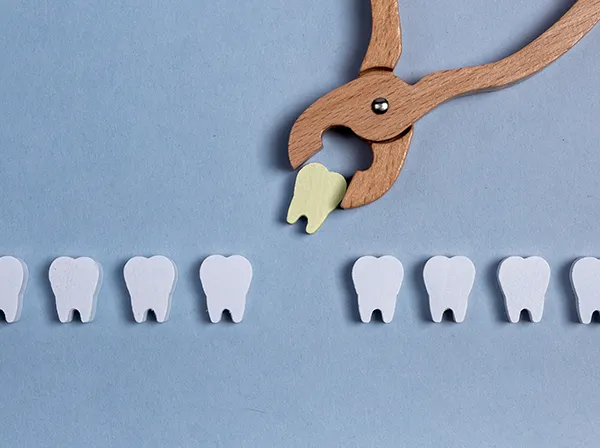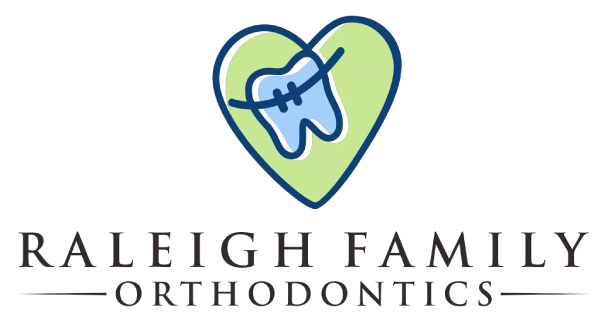 Maintaining optimal oral health is crucial for overall well-being, and sometimes, tooth extractions are necessary to preserve oral health. Tooth extractions are a common dental procedure undertaken for a variety of reasons, from resolving issues of overcrowding and preventing infection to addressing tooth decay and trauma.
Maintaining optimal oral health is crucial for overall well-being, and sometimes, tooth extractions are necessary to preserve oral health. Tooth extractions are a common dental procedure undertaken for a variety of reasons, from resolving issues of overcrowding and preventing infection to addressing tooth decay and trauma. Here at Raleigh Family Orthodontics,we often perform tooth extractions for our patients before they receive orthodontic care. Oftentimes, overcrowding can occur and removing teeth is necessary prior to starting treatment for braces or Invisalign.
Reasons for Tooth Extractions
While we always do everything we can to save your teeth, tooth extractions, or the removal of a tooth from its socket in the jawbone, may be recommended for various reasons. Understanding when tooth removal is necessary is crucial for appreciating the importance of this common dental procedure.
Addressing Severe Tooth Decay
Advanced tooth decay can compromise a tooth's structural integrity, making restoration impossible through procedures like fillings or crowns. Tooth extraction may be necessary to prevent the spread of infection to the surrounding teeth.
Managing Periodontal Disease
Untreated gum disease can lead to loose teeth as supporting bone and tissues deteriorate. Extraction becomes a viable option to stop the progression of the disease and protect overall oral health.
Dealing with Impacted Wisdom Teeth
Wisdom teeth often emerge misaligned, and coming through the gums in awkward angles. This can cause a great deal of discomfort and potential damage to nearby teeth. Extracting impacted wisdom teeth is a preventive measure to avoid complications and maintain oral health.
Orthodontic Treatment Requirements
Tooth extraction may be recommended as part of orthodontic treatment to create space for proper teeth alignment, especially in cases of overcrowding.
Addressing Trauma or Injury
Accidents or injuries can result in irreparably damaged teeth, necessitating extraction to prevent infection and alleviate pain.
The Tooth Extraction Process
The tooth extraction process is meticulously planned and executed by our dental professionals to ensure minimal discomfort and optimal results.
Comprehensive Pre-Extraction Evaluation
Before extraction, Dr. Lee and Dr. Neill will conduct a thorough examination, possibly including X-rays, to assess the tooth's position, surrounding structures, and any potential complications.
Effective Local Anesthesia
Most extractions are performed under local anesthesia to numb the area effectively, ensuring minimal pain during the procedure. Additional sedation options may be considered for surgical extractions, complex cases, or to ease patient anxiety.
Skilled Tooth Extraction Technique
Using specialized instruments, the dentist delicately loosens the tooth within its socket before carefully extracting it, employing techniques tailored to the tooth's condition and the reasons for extraction.
Types of Extractions
Tooth extractions, especially wisdom teeth extraction, can involve different surgical techniques, based on factors such as the tooth's position, the complexity of the case, and the patient's health. Here are the primary methods used:
Simple Extraction (Non-Surgical Extraction)
This method is applicable when the wisdom tooth is fully erupted and properly aligned. It involves using a dental tool known as an elevator to loosen the tooth, followed by forceps to extract it, similar to a standard tooth extraction.
Surgical Extraction
A surgical extraction is often necessary for impacted wisdom teeth, which are those that haven't fully emerged through the gum or are growing at an angle. This procedure requires an incision in the gum to reveal the tooth and surrounding bone. Any bone covering the tooth root may be removed, and the tooth might be sectioned into smaller pieces for easier extraction. After removal, the area is cleaned and the incision is sutured to aid healing.
Partial Extraction (Coronectomy)
A partial extraction is a less common approach, generally reserved for cases where nerve injury is a concern. It is often recommended in situations where extracting a lower wisdom tooth poses a significant risk of damaging the inferior alveolar nerve. This technique involves removing only the crown of the tooth and leaving the roots intact.
Each of these methods requires careful consideration of the individual's specific dental health needs and circumstances.
Guidance for Post-Extraction Care and Considerations
After extraction, our dental team will provide post-operative care instructions, including tips for managing swelling, dietary recommendations, and prescribed medications if needed.
Managing pain during the recovery period after extraction is crucial for optimal healing and minimizing complications. Here are key considerations for post-extraction care:
Managing Bleeding and Clot Formation
Expect some bleeding initially; biting on a gauze pad helps form a clot. Avoid activities that may dislodge the clot, such as rinsing vigorously or using a straw.
Alleviating Swelling and Pain
Swelling and discomfort are common post-extraction. Applying ice packs to the outer part of the cheeks and taking prescribed or over-the-counter pain medications can help manage these symptoms.
Maintaining Oral Hygiene
Gently brush your teeth while avoiding the extraction site to promote proper healing. Rinse with a recommended mouthwash to reduce the risk of infection.
Following Dietary Restrictions
Stick to a soft diet initially and avoid hot, spicy, or hard foods that may irritate the extraction site.
Avoiding Tobacco Products
Refrain from tobacco use as it hinders healing and increases complication risks.
Limiting Physical Activity
Rest and avoid strenuous activities to prevent bleeding.
Staying Hydrated
Drink plenty of water to aid healing and prevent dry socket.
Monitoring for Signs of Infection
Watch for signs of infection and contact our dentist if concerned.
Exploring Tooth Replacement Options
After extraction, explore tooth replacement options to restore function and aesthetics. Consider:
Dental Bridges
Dental bridges are stationary prosthetic devices that replace missing teeth, anchored to adjacent natural teeth or implants, to prevent shifting.
Dentures
Dentures are removable prosthetic devices that address multiple missing teeth, by restoring oral function and aesthetics.
Dental Implants
Dental implants are long-term, stable replacements surgically implanted into the jawbone, closely mimicking natural teeth.
Restore Your Smile! Schedule a Consultation Today
A tooth extraction is a common procedure for maintaining oral health and preventing further complications. Understanding the process and post-extraction care is essential for optimal recovery.
If you're facing a tooth extraction or considering tooth replacement options, visit Raleigh Family Orthodontics. Prioritizing your comfort and oral health, we're here to guide you toward a healthy and whole smile. Schedule a consultation by calling us at (984) 254-0585. Let us be your partner in achieving optimal oral health and a confident smile!

